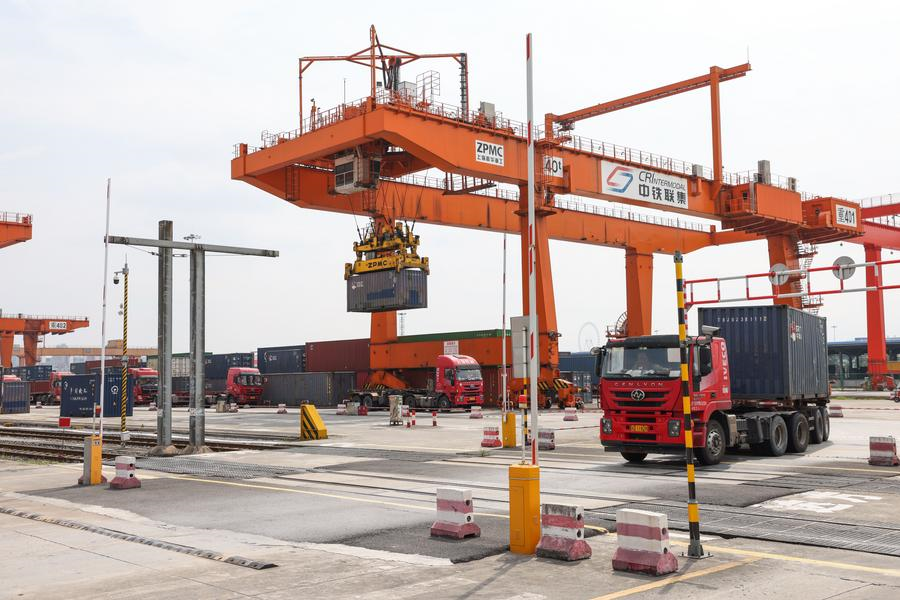
 0 Comment(s)
0 Comment(s) Print
Print E-mail Xinhua, August 6, 2024
E-mail Xinhua, August 6, 2024

A vehicle transfers a container at the dry port of the New International Land-Sea Trade Corridor in the Chongqing International Logistics Hub Park in Shapingba District of Chongqing, southwest China, July 30, 2024. [Photo/Xinhua]
Over the past five years, the New International Land-Sea Trade Corridor has expanded its reach to 523 ports in 124 countries and regions.
With its operational hub based in southwest China's Chongqing Municipality, this trade corridor connects global ports via railways, sea routes and highways through southern Chinese provincial regions such as Guangxi and Yunnan.
According to the data released on Monday by the coordination center for logistics and operation of the New International Land-Sea Trade Corridor, more than 30,000 China-Europe freight trains have operated via the trade corridor.
From 2019 to 2023, the annual freight volume through the trade corridor from Chongqing increased by 50 percent, 45 percent, 54 percent, 32 percent and 21 percent year-on-year, respectively.
Over the past five years, the variety of goods transported through the trade corridor has expanded from over 80 types to more than 1,150 types, covering a wide range of categories, including electronic products, vehicles and components, machinery, small household appliances and food. The trade corridor has now achieved a near balance between inbound and outbound shipments.
Relying on the fast and efficient corridor, specialty products from western China, such as goji berry juice and red wine from Ningxia, oranges from Chongqing and tea from Guizhou, have become new growth drivers for local foreign trade. Additionally, the export of new energy vehicles from these western regions has accelerated, with local auto enterprises establishing factories in Southeast Asian countries.
Meanwhile, Southeast Asian specialty products like Thai durians and Vietnamese basa fish are entering the Chinese market more quickly through the corridor.
The corridor not only promotes the opening up and development of western China but also creates new opportunities for the Belt and Road Initiative participating countries, said the coordination center for logistics and operation of the New International Land-Sea Trade Corridor.